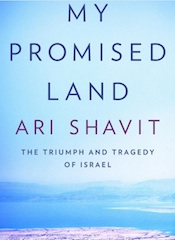When we think about Israel’s prominence now, with its population approaching 10 million, and its contributions in so many fields being far out of proportion to its size, it is sobering to recall its early beginnings, and its fragility, when it issued its Declaration of Independence 75 years ago.
On the day that Israel’s independence was declared, May 15,1948, forces from five Arab countries invaded to join internal resistance to Israel’s existence, which had begun in November 1947 with the United Nations declaration of the Partition Plan. The war continued until January 1949, through multiple calls for a ceasefire by the United Nations, as the Arab side saw their hopes for a quick victory reversed.
The government of Israel changed its stance during this time. Initially concerned only with preserving the UN Partition Plan, which involved non-contiguous pieces of territory, as its forces gained the initiative, it sought to establish borders having a greater chance of being more defensible in a hostile neighbourhood.
During the early period, Israel managed to establish the beginnings of a standing army, navy and air force, as well as a commando unit, assembled by bits and pieces from around the world. With unleashed immigration, available soldiery increased every day during the war period. As the war proceeded, every man, and every unmarried woman, in Israel over the age of 25 was eventually subject to mobilization. It has been said that the Jews’ secret weapon in the face of the existential threat they confronted was that there was no other place for them to go.
Many of the indigenous Arabs fled the country during the hostilities, sometimes at the urging of the invading troops, but there were also populations expelled, where Israeli forces faced hostility. Jews in the country had faced increasing violence from their Arab neighbours and, during the war, in areas occupied by Arab forces, particularly in the Old City, but also in the West Bank, there were Jewish residents who were summarily murdered.
Many of the battles were fierce and bloody, with substantial losses of people and material on both sides. Attacks on isolated settlements by Arab units were often aimed at overcoming the resistance of poorly armed residents living in strategic locations. The strength of their commitment to defending their homes often carried the day.
By the end of the struggle, more than 6,000 Israelis had been killed – one-third of the fallen were individuals who were survivors of the Holocaust. Estimates of the number of Arabs/Palestinians killed in the war vary from 5,000 to 10,000.
In the end, Israel retained its allocated portion under the partition and won some of the territory that had been ascribed to the Arab side by the UN plan. Israel withdrew from territories it still occupied in the Egyptian Sinai and in southern Lebanon when hostilities were ended by a ceasefire.
Israel inherited a de-facto Egyptian presence in the Gaza Strip and a Jordanian annexation of the Old City of Jerusalem, and what was ancient Judea and Samaria became the West Bank and under Jordanian control. These were a portion of the areas that had been allocated to the Palestinians by the UN Partition Plan. It was at great cost that control of West Jerusalem was retained.
Israel was attacked again in 1967 and in 1973, successfully defending itself and extending Jewish occupation in further areas that were a part of the country’s historic past, including the Old City and the West Bank. In the 1967 war, Israel seized and, in 1981, annexed Syrian territory, the Golan, high ground from which it was constantly being bombarded.
Under the later Oslo agreements, the Palestinian Authority (PA) was established to allow Palestinian self-government in the heavily populated areas of the West Bank. Israel unilaterally withdrew from the Gaza Strip in 2005. In a 2006 Palestinian election, the Hamas terrorist group became the elected government, but the PA (led by Fatah) refused to relinquish power. Hamas seized control of the Gaza Strip by force, and remains a continuous source of violence. In Lebanon, the terrorist group Hezbollah remains a factor, while Israel has managed to contain Iranian efforts to establish themselves in Syria.
In recent years, there have been alliances made with neighbouring Arab countries. Some of these countries recognize their common cause with Israel to counter efforts by Iran for hegemony. Many of these countries are seeking benefits from the technological advances made in Israel in sectors like agriculture, medicine, cybersecurity and defence. Research and development has been a priority investment by the succession of Israeli governments since its adoption of the private enterprise model for its economy. Foreign investment has poured into Israel, helping fund economic growth, and placing Israel among the world’s highest in GDP per capita.
The standard of living of Israel’s Arab citizens has also risen with increasing integration and exceeds that of citizens in neighbouring Arab countries, or those under PA administration. Perhaps this is another reason for the move to normalize relations with Israel by several Arab countries under the Abraham Accords.
As Israel’s 75th anniversary approaches, several problems remain to be tackled. Concerns over security and increased Jewish settlement in disputed areas are among the factors that led to the election of a government coalition many consider extremist, with some policy proposals, such as the judicial reforms, raising alarm among centrist and left-leaning elements. These have led to mass protest demonstrations in Israel and abroad. Demands from the ultra-religious sector who have gained political power, if realized, could impair the lifestyles of many in the general population. As well, there has been a wave of terrorist attacks recently and there is concern that this may lead to revanchist policies targeting Palestinian citizens.
At 75 years old, the state of Israel continues to be a happening place.
Max Roytenberg is a Vancouver-based poet, writer and blogger. His book Hero in My Own Eyes: Tripping a Life Fantastic is available from Amazon and other online booksellers.


